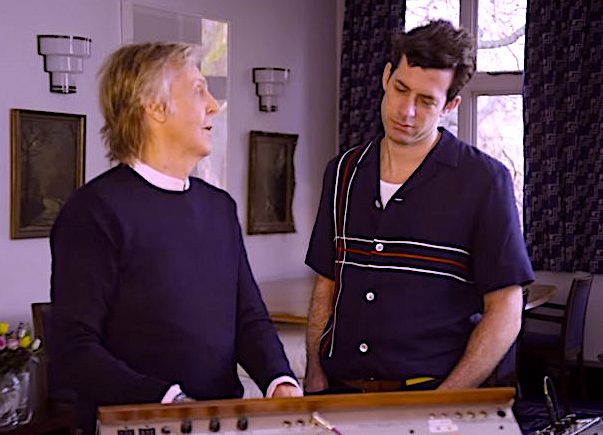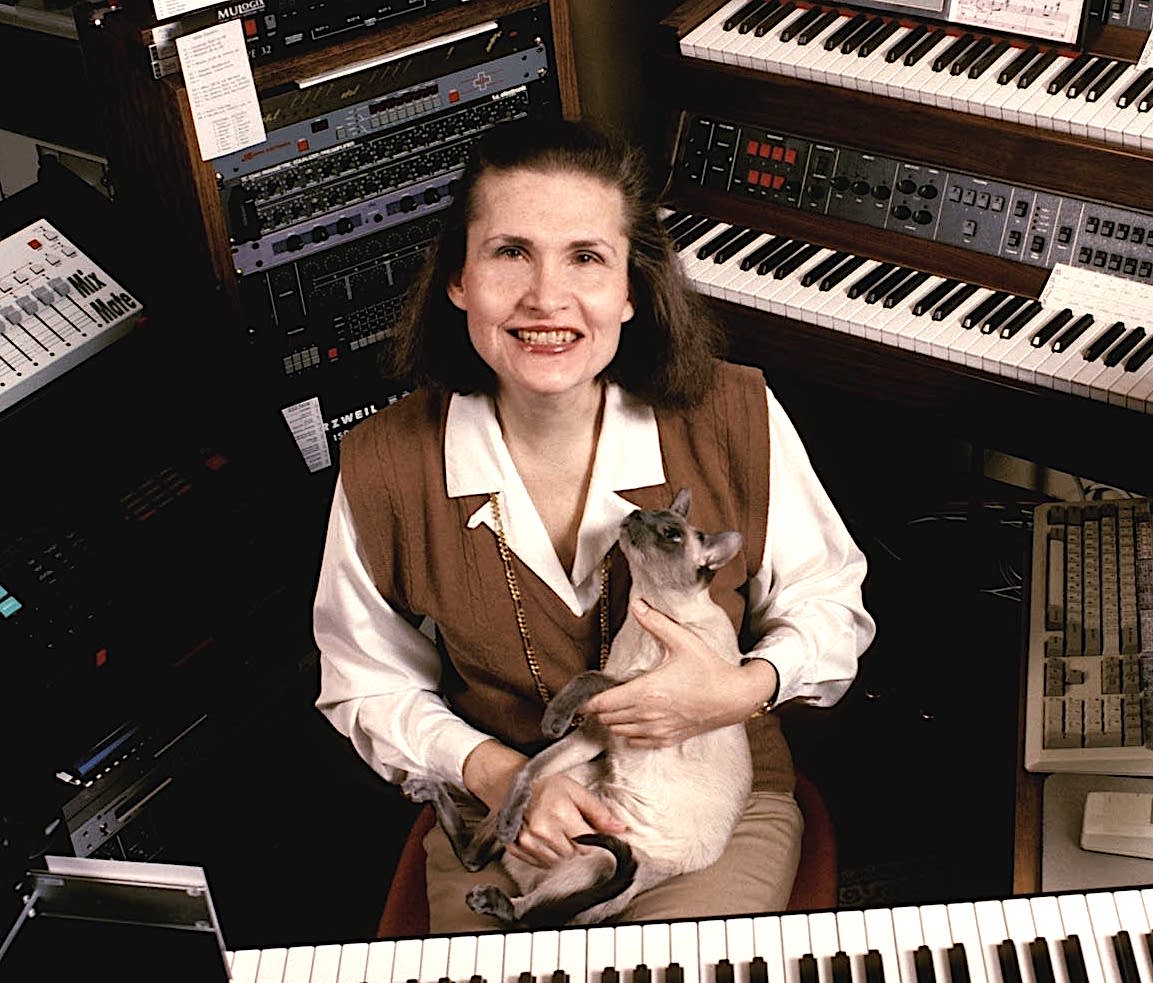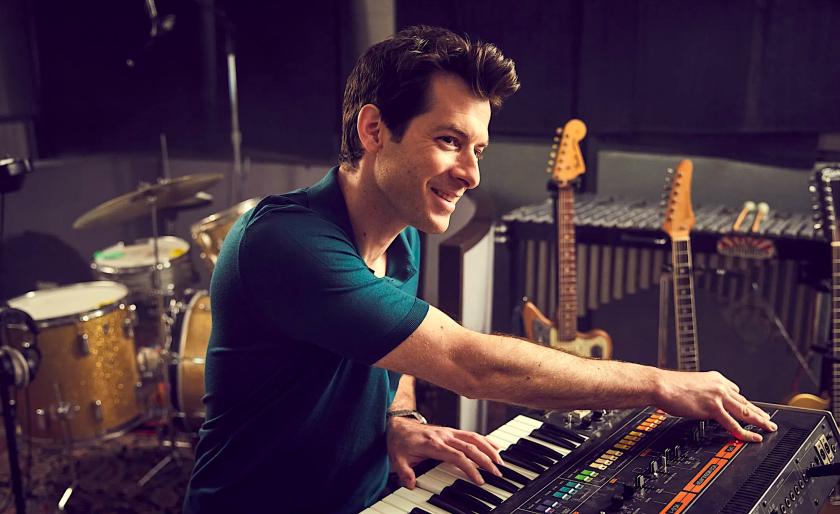Producer to the stars and creator of the monstrously successful “Uptown Funk”, Mark Ronson knows a thing or two about making noises. He has combined this know-how with a laid-back knack for presenting to make this six-parter for Apple TV+, delving into the history of how developing technology has driven innovation in the music business.
It’s an almost infinitely sprawling subject, but Ronson has drawn up a deluxe list of contributors to give him a hand. For instance, an eager Paul McCartney pops up in the episode about sampling to describe how the Beatles experimented with tape loops in “Tomorrow Never Knows” and were early adopters of the sound-sampling Mellotron on “Strawberry Fields Forever”. Venerable he may be, but McCartney (pictured below) has been a significant experimentalist in his time and is still looking forwards. “You’ve just got to allow progress,” he says. “It’s going to happen with or without you, so you might as well ride along.”
 Yes indeed, and one of Ronson’s themes is the way that evolution will find a way, even in the unlikeliest circumstances. For instance, hip-hop emerged from the Bronx at least partly because there was no funding in schools for music education, so kids who couldn’t get access to musical instruments took the short cut of sampling existing sounds instead. Public Enemy’s Hank Shocklee recalls stealing beats from James Brown’s drummer Clyde Stubblefield, while Questlove describes how he used to play drums with his father’s doo-wop group as a child, then later would plunder the grooves in his dad’s record collection to create tracks with hip-hoppers the Roots.
Yes indeed, and one of Ronson’s themes is the way that evolution will find a way, even in the unlikeliest circumstances. For instance, hip-hop emerged from the Bronx at least partly because there was no funding in schools for music education, so kids who couldn’t get access to musical instruments took the short cut of sampling existing sounds instead. Public Enemy’s Hank Shocklee recalls stealing beats from James Brown’s drummer Clyde Stubblefield, while Questlove describes how he used to play drums with his father’s doo-wop group as a child, then later would plunder the grooves in his dad’s record collection to create tracks with hip-hoppers the Roots.
Meanwhile, it was sequencing and sampling gadgets like Akai’s MPC60 and the superior MPC3000 which allowed rappers and the likes of Ronson himself to develop their track-building skills, and he’d buttnholed drum-machine pioneer Roger Linn to talk about his fabled Linndrum. Linn wryly recalled how he’d tried to make the drum sounds on his machine as realistic as possible, only to find artists preferring to tweak the settings to create robotic, machine-like noises instead.
The notion of the death of “real” music (ie people playing guitars and keyboards) at the hands of user-friendly machines – now even friendlier, since where you once needed a drum machine or a synthesizer you can just use a software plugin on your computer – inevitably rears its head. It's perhaps most telling in the episode about Auto-Tune, the electronic voice-enhancing and pitch-fixing tool which announced itself with Cher’s 1998 hit "Believe". Many artists originally denounced Auto-Tune as the work of the devil (or at least of producers of shamefully synthetic pop dross), but now it seems almost everybody uses it to sharpen up their vocals, even if they daren’t admit it. It has become so ubiquitous and sophisticated that it can allow anyone to create sophisticated vocal sounds and write songs, even if they have no musical experience or expertise. Somebody suggests unnervingly that “whatever it is to be human, it’s different now”, while music critic Simon Reynolds postulates that “the sound of the 21st Century is going to be autotune”. Goodbye, all you old-fangled singer-songwriters with your acoustic guitars.
 All of this stuff is absolutely fascinating, and it's rare to feel quite so gripped (or indeed educated) by a music series on TV. The episode about synthesizers is a mini-voyage all of its own, ranging from Nick Rhodes of Duran Duran enthusing about the horizon-expanding possibilities of his beloved Roland Jupiter-8 synth (“it was like discovering another planet”) to Prince and Gary Numan, before delving back in time to Delia Derbyshire’s work with the BBC Radiophonic Workshop and Wendy Carlos’s revolutionary Switched On Bach and the Clockwork Orange soundtrack (Carlos pictured above). There’s a fascinating little sidebar about how electronic music particularly appealed to women, allowing them to work independently outside the rigidly mostly-male environs of the musical establishment.
All of this stuff is absolutely fascinating, and it's rare to feel quite so gripped (or indeed educated) by a music series on TV. The episode about synthesizers is a mini-voyage all of its own, ranging from Nick Rhodes of Duran Duran enthusing about the horizon-expanding possibilities of his beloved Roland Jupiter-8 synth (“it was like discovering another planet”) to Prince and Gary Numan, before delving back in time to Delia Derbyshire’s work with the BBC Radiophonic Workshop and Wendy Carlos’s revolutionary Switched On Bach and the Clockwork Orange soundtrack (Carlos pictured above). There’s a fascinating little sidebar about how electronic music particularly appealed to women, allowing them to work independently outside the rigidly mostly-male environs of the musical establishment.
You won’t want to miss the instalment about drum machines either, and how they provided the foundations for the likes of LL Cool J and Run-DMC as well as making Kraftwerk possible. Ronson ponders at one point "whether man and machine can co-exist" as the gadgets march on inexorably, though young artists like King Princess are now rediscovering the Eighties-style joys of classics like Roland’s TR-808 Rhythm Composer. Comically, KP considers using an 808 to be like using antique “organic” instruments instead of soulless software computers. Talkin’ ‘bout my generation or what.















Add comment